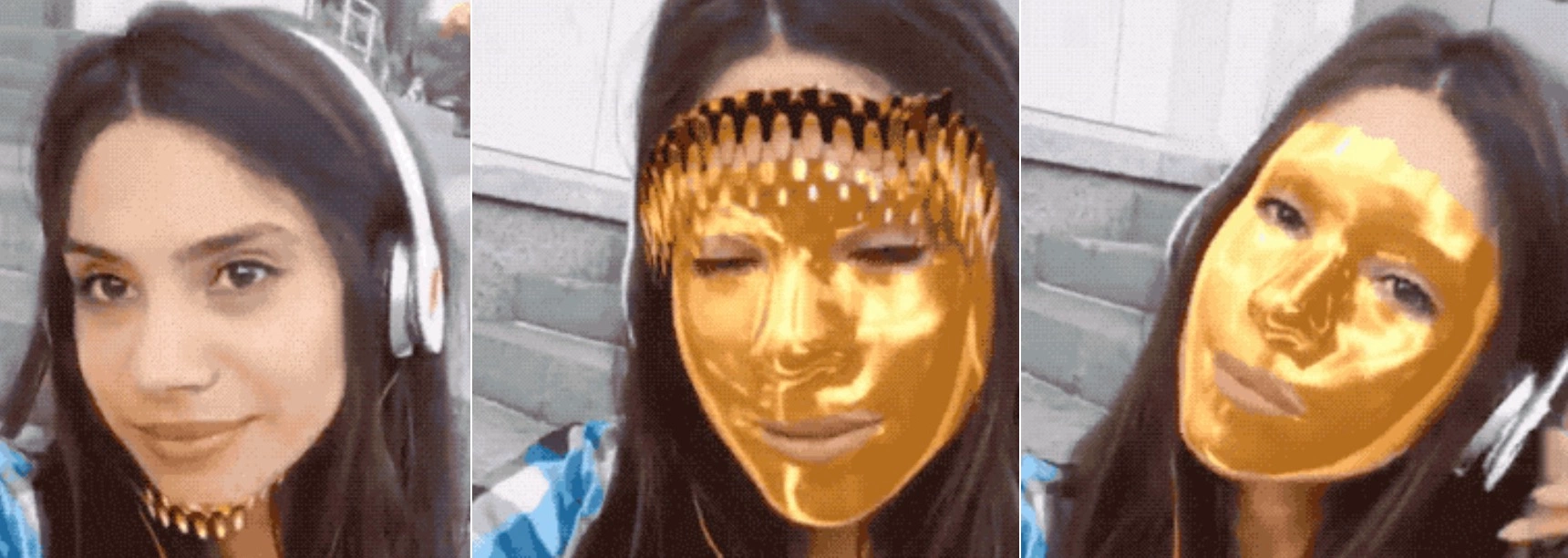digital faces
TLDR : (Very) short story about digital manipulation of selves
Marianne preferred her real face to her digital face. Not that it ‘felt’ any better when looking at it. Obviously, being able to proportion her face so that it was entirely symmetrical, get rid of acne and rein in her crooked nose, ‘felt’ aesthetically better. The issue was, it didn’t ‘feel’ authentic to her.
She tried to bring this up whilst walking back from school with a friend. “Imagine if we all just switched off our glamour, wouldn’t that be crazy’ Both the teenagers had grown up with glamour. They had gone their entire lives looking at well proportioned symmetrical faces, aesthetic curves and toned physiques. The fact that everyone was beautiful, meant that no-one was beautiful. It levelled the playing field and made it paradoxically more equal. This is what led to the institution of glamour in the first place. Thought leaders argued that the ‘Halo effect’ : a cognitive bias where those who are more attractive are seen to have ‘better qualities’ can be bypassed. It would be a step on the road towards equality of opportunity.
“I don’t really see the point of switching it off, I’m happy with the way I look now, why would I want to change that?” Marianne thought about that. “But it’s not your ‘real’ face is it?” “It’s real enough to me. Every time I look in the mirror, this is what I see” Marianne found herself agreeing. I guess if everyone saw your glamour, then it was as real as it could be? Probably more real than what people used to do with makeup and wigs. The conversation drifted, and they walked back lost in talk of future plans.
Prediction : AR Avatars
I’ve been on social media a lot more than in the past, after almost being off platforms for the past 4 years. One road I’ve been going down is how the ‘sense of self’ is affected through images/video. Also exploring ‘influencer’ culture (which is new to me)
Social media involves the creation of a digital self.
Personality is not stable. It’s not unified. You act differently in various contexts, around different people. You’re context dependent. There really is no ’true’ baseline self, there is just a self arising in different contexts. Social media is one of those contexts.
We all know that with instagram for example, it’s a highlight reel of the best points of a life. But what is interesting is, that what you choose to post kind of ‘shapes’ a digital personality, that then can impact your irl personality’.
For example, if you post your workout videos, and give updates on progress etc– you’re actually reinforcing an identity of a person that cares about physical fitness. In the past, maybe you shared it with irl friends, but now your digital personality has this trait.
I think social media can be really useful in creating a stable sense of self. But there is a dark side we all know about, especially for teenage girls. You can ‘fake it’ in certain ways.
I think everyone knows this. But that doesn’t mean that it doesn’t have an impact. But what is interesting is, that if everyone perceives you in a certain way online that is how you end up perceiving yourself. The digital and physical become intertwined. This is the ’looking glass theory’ by sociologist Charles Cooley
Others perception of us, shapes our own perception of ourselves
I feel this is something everyone intuitively knows. Irrespective of if you care about someone’s opinion of you, you still project a reflection that takes into account how others perceive you.
This isn’t a bad thing, its just an observation. I wake up, and style my hair in a certain way, partly because I am presenting myself to others. I can fool myself into pretending I’m doing it for myself, but if other people vanished off the face of the earth, and mirrors didn’t exist, would we still care about appearance?
It’s an interesting thought experiment, I would say- No, because being perceived by others is part of the creation of a self.
Prediction : Augmented Reality Faces
Physical manipulation of appearance e.g. makeup, hair - has been around for a while. It’s presenting a version of the self. (If I haven’t said, this isn’t a bad thing)
Now with digital technologies, we can asynchronously change our photos to present a version of ourselves to others. Everything from lighting, to angle, to photo brushing, to snapchat filters.
A prediction is that the next leap forward will be with augmented reality. We can change our faces and appearance in real time. We can already do this in crude ways, but I think as the tech improves, it will be hard to distinguish reality from animation.
Interestingly, if everyone perceives you in a certain way with AR, then that becomes a reality. Shared consensus is what we call reality anyways. We both agree that the ‘grass is green’.
Quick google search - ARCore framework added the below.

Now imagine if AR glasses became as prevalent as smartphones. We could literally alter how others perceive us in real time. That is incredibly cool, and also incredibly terrifying.
Like any good sci fi, I’ll leave you to ponder the implications and potential scenarios.